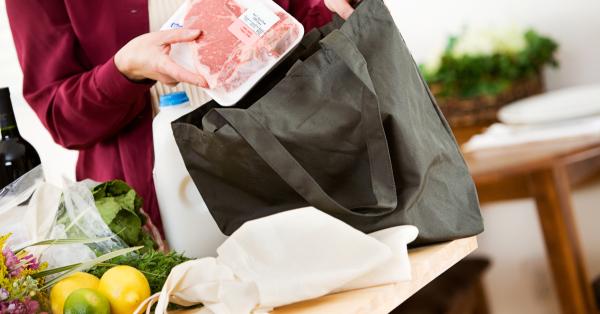Reusable bags: Why your business should make the switch
- July 3 2022
- 3 min read
Reusable bags: Why your business should make the switch

In a world of growing environmental concerns, making the switch to reusable bags is more important than ever. Single use plastic bags negatively impact the environment, and paper bags may not be as beneficial as you think!
Read on to find out how making the switch to reusable bags can help both the environment and your business…
The problem with single use plastic bags
Non-renewable source
Single use plastic bags are made from petroleum. Petroleum oil is a fossil fuel, which means there is a finite (non-renewable) source of it in the world. To process petroleum into plastic bags also creates greenhouse gasses, contributing to climate change.
Not reusable or recyclable
Single use plastic isn't reusable. The thin material breaks easily, and clog up recycling machines.
Harmful to marine life
We often throw away single use bags after one use (hence the name). This means there’s more plastic in landfill or the ocean. When this plastic ends up in the ocean, it can kill marine life who mistake it for food. Reusable bags prevent this from happening!
Litter
Single use plastic bags are so lightweight that they’re often blown out of trash cans, unlike reusable bags. We’ve all heard Katy Perry’s famous lyrics about plastic bags drifting through the wind, or seen the American Beauty scene with one flying through the air. As ‘beautiful’ as Jake Gyllenhaal might find it, clean streets are far more appealing!
Why should you avoid paper bags?
Whilst paper bags might be recyclable, they don’t prove to be very reusable. Paper bags aren’t waterproof and break easily. Trees are a non-renewable source, taking many years to grow. What’s more, bleaching paper bags with chemicals is harmful to the environment when they degrade.
Why should you switch to reusable bags?
Recycling and reusing
Reusable bags are mostly made from recycled plastic, reducing waste. You can reusable them for a long time as they’re much stronger than single use plastic. Your customers won’t experience the dreaded experience of their groceries breaking whilst carrying them home, and your store will spend less money over time purchasing bags!
Many supermarkets have recycling schemes for when reusable bags reach the end of their life, which contributes to less waste in landfill.
Renewable sources
Reusable bags can be made from renewable plant sources such as cotton or jute bags. These plants are grown and harvested very quickly, unlike trees.
Meet consumer demand
Consumers are becoming more eco-conscious, and are “voting with their wallets” on environmental issues. They’re more likely to shop at a store that offers reusable bags, as it shows the company cares about important social issues.
Better appearance!
Reusable bags can be customized in a range of colors and designs. With so many options, you can find a reusable bag that suits your brand. These are going to look far more appealing in your stores!
Gain access to Orders, Tracking, Custom Options and Much More!